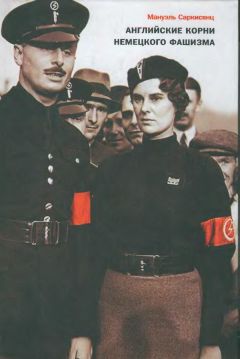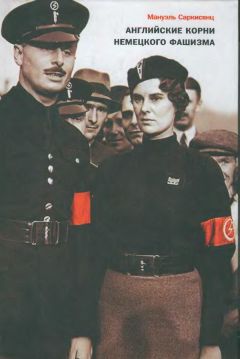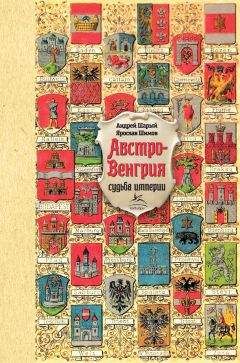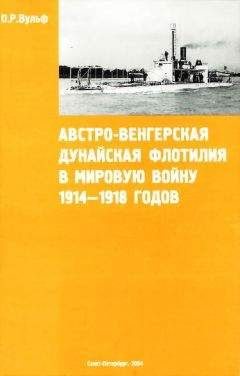436
G. E. Watson, English Ideology. Studies in the language of Victorian politics (London, 1973), p. 190, quoting A. Tocqueville, Journeys to England and Ireland of 1835 (London, 1968), p. 60; Gerwin StrobI, The Germanic Isle. Nazi perceptions of Britain (Cambridge, 2000), p. 31; Lord Selbourne quoted in G. R. Searle, Corruption in British politics 1895-1930 (Oxford, 1987), p. 116; Paul Kennedy & A. Nicholls (Hrsg.), Nationalist and racialist movements in Britain (Oxford, 1981), S. 30.
Heinrich Himmler, Geheimreden, S. 44.
Thomis & Holt, Threats of Revolution in Britain, S. 28; Joseph Goebbels, "Erziehung und Fuhrerschicht": Nationalsozialistisches Jahrbuch (Munchen, 1930), S. 180, 181.
Поводом для этого высказывания послужил упрек, прозвучавший по британскому радио, вещавшему по-немецки, мол, в Англии каждый вправе слушать передачи из Германии, а в гитлеровской Германии тех, кто слушает зарубежные радиостанции, строго наказывают (прим. автора).
Christoph Jahr, Gewohnliche Soldaten, Desertion und Deserteure im deutschen und britischen Heer 1914-1918 (Gottingen, 1998), S. 18, 162, 205, 240, 338, citing Julian Putkowski and Julian Sykes, Shot at Dawn (Barnsley, 1993), p. 243.
Английские моряки провозгласили "Floating Republic" (плавучую республику (англ.)) и грозили блокировать Лондон; но когда их требования были удовлетворены, моряки его британского величества вновь подняли на мачте его флаг, чтобы защитить Англию от флота Нидерландов, ставших якобинскими (прим. автора)241a.
Philip Mason, Prospero's Magic. Some thoughts on Class and Race (London, 1962), p. 106; John Higham, Strangers in the Land. Patterns of American Nativism 1860—1925 (Westport, USA, 1981), S. 138, zitiert "Business Magazine" Public Opinion (1886), S. 355: "Age of Steel".
Adolf Hitler, Mein Kampf (Munchen, 1940), S. 251; vgi. Schwind-Waldeck, Wie deutsch war Hitler? (Frankfurt, 1979), S. 165.
Фрич Вернер фон, барон (1880—1939) — нем. воен. деятель, генерал, с 1935 г. — главнокомандующий, в 1938 г. снят с этой должности за разногласия с Гитлером.
Когда проситель возразил, сказав, что он — противник национал-социализма, судья спросил переводчика: "Что это такое?" И тот ответил: "Не знаю, ваша честь, — возможно, что-то вроде лейбористской партии" (прим. автора).
Arthur Marwick, The Home Front. The British and the Second World War (London, 1976), pp. 36f; Peter and Leni Gillman, "Collar the Lot!" How Britain interned and expelled its Wartime Refugees (London, 1990), p. 286; Hubertus Prinz zu Lowenstein, Abenteurer der Freiheit (Frankfurt, 1983), S. 231; R. Thurlow, Fascism in Britain (New York, 1987), p. 221; R. Cecil, The Myth of the Master Race, p. 176.
James Drennan, Der britische Faschismus und seine Fuhrer (Berlin, 1934), S. 230.
Hannah Arendt, Elemente und Ursprunge totaler Herrschaft (Frankfurt, 1955), S. 126; Cecil Rhodes (1895) quoted in Robert Colls and Philip Dodd (Editors), Englishness. Politics and Culture 1880-1920 (London, 1986), p. 46.
Disraeli to Lord George Bentinck, quoted in: Wingfield-Stratford, History of English Patrintism (London, 1913), Vol. II, p. 545.
Carl Schmitt, Glossarium. Aufzeichnungen der Jahre 1947—1951. Hrsg. von Eberhard von Medem (Berlin, 1991), S. 142: 1. Mai, 1948; Arendt, p. 128.
Disraeli, Tancred or The New Crusade = Benjamin Disraeli, Novels and Tales, Band X (London, 1927), p. I53f.
Esme Wingfield-Stratford, History of English Patriotism, II, p. 547, 546.
Disraeli, "Life history of Lord Bentick" (1853), zitiert bei H. Ruhl, Disraelis Imperialismus und die Kolonialpolitik (Leipzig, 1935), S. 411; Wingfield-Stratford, p. 546, 547.
Disraeli, Tancred, p. 153f.
Walter E. Houghton, The Victorian frame of mind 1830-1870 (New Haven, 1970), p. 325.
Randall Bytwork, Julis Streicher (New York, 1983), p. 133.
Esme Wingfield-Stratford, History of English Patriotism, II, p. 545.
Ibid., p. 545.
G. E. Watson, The English Ideology. Studies in the language of Victorian politics (London, 1973), p. 202, 204.
Benjamin Disraeli, Lothair = Benjamin Disraeli, the Earl of Beaconsfield, Novels and Tales, Band XI (London, 1927), p. 397.
Arendt, S. 128.
Disraeli, Tancred or The New Crusade = Benjamin Disraeli, Novels and Tales, Band X (London, 1927), p. 270, 271.
Arendt, S. 128.
Benjamin Disraeli, Lothair = Benjamin Disraeli, the Earl of Beaconsfield, Novels and Tales, Band HI, iii (London, 1927), p. 34: Ruhl, Disraelis Imperialismus, S. 53.
Ruhl, S. 52f.
Ruhl, S. 59.
Arendt, S. 126.
Morris S. Lazaron, "Benjamin Disraeli", in: Seed of Abraham (New York, 1930), angefuhrt bei Hannah Arendt.
Arendt, S. 119.
Benjamin Disraeli, Coningsby or The new genius (1844), Bok IV, Chapter xiii = Disraeli, the Earl of Beaconsfield, Novels and Tales, Vol. VIII (London, 1927), p. 253.
Disraeli, Coningsby, IV, x: Arendt, S. 125.
Arendt, S. 127.
Disraeli, Lothair = Benjamin Disraeli, Novels and Tales, Vol. XI, p. 397.
Disraeli, Lothair, Kapitel xxix: Disraeli, Novels and Tales, XI, p. 134.
Disraeli, Lothair, Novels and Tales, Vol. XI, p. 131.
Disraeli, Lothair, Novels and Tales, XI, p. 381.
Ibid., p. 390.
Ibid., p. 387.
Disraeli, Lothair, Chapter xxix, ibid., p. 132.
Disraeli, Lothair, ibid., p. 459.
Disraeli, Lothair, Chapter xxix, ibid., p. 132.
Ibid., p. 133.
Ibid., p. 131.
Ibid., p. 133-134.
Arendt, S. 125.
Esme Wingfield-Stratford, History of English Patriotism, Band II (London, 1913), p. 551.
Disraeli, Lothair, xxix, ibid., p. 133.
Wingfield-Stratford, II, p. 559.
Ibid., S. 534, 536f.
Disraeli, Londoner Kristallpalast-Rede vom 24. Juni 1872: Earl of Beaconsfield, Selected Speeches, Edited with an introduction by Т. E. Kobbel, II (London, 1882), p. 524.
Oskar A. H. Schmitz, Englands politisches Vermachtnis an Deutschland durch Benjamin Disraeli, Lord Beaconsfield (Munchen, 1916), S. 395.
Wingfield-Stratford, II, 563.
"Сила в радости" — национал-социалистическая организация в составе Германского трудового фронта, занимавшаяся вопросами досуга, отдыха и развлечений среди рабочих. Руководитель организации Роберт Лей стремился избавить рабочего человека от "чувства неполноценности, которое он унаследовал от прошлого".
Schmitz, S. 433.
Ibid., 414, 430.
Wingfield-Stratford, II, p. 562.
Ibid., II, 561.
Disraeli, Sibil or The Two Nations (1845), Book IV, Chapter viii = Benjamin Disraeli, the Earl of Beaconsfield, Novels and Tales, Ы. IX (London, 1927), p. 77, 285.
Earl of Selborne, Draft of letter to the Editor of the "Morning Post", July 1912, quoted in: G. R. Searle, Corruption in in British politics (Oxford, 1987), p. 116.
Missed footnotetext ?
Schmitz, S. 116, 333.
Carl Peters, Nationalpolitisches Vermachtnis. Der Deutsche und sein Lebensraum (Hannover 1938), S. 51ff.
G. E. Watson, English Ideology (London, 1973), p. 199.
V. G. Kiernan, Lords of Humankind (London, 1969), p. 58.
D. C. Somervell, Geistige Stromungen in England im neunzehnten Jahrhundert (Bern, 1946), S. 276f.
Чемберлен Джозеф (1836—1914) — англ. гос. деятель, в 1895—1903 гг. — министр по делам колоний в консервативном кабинете Солсбери.
C. P. Lucas, Greater Rome and Greater Britain (Oxford, 1912), p. 108; D. C. Somervell, Geistige Stromungen in England im 19. Jahrhundert (Bern, 1946), S. 276f.
Disraeli, Earl of Beaconsfield, Selected Speeches, II, p. 531—533.
Ibid., p. 528; Ross MacKibbin, Class and Culture in England 1918-1951 (New York, 1998), as reviewed in American Historical Review, Vol. CV, No 2 (April, 2000), p. 614; cf Joseph Schumpeter, "Zur Soziologie des Imperialismus":Archiv fur Sozialwissenschaft und Sozialpolitik. Vol. XLVI (1918/1919), S. 6, 8.
Wingfield-Stratford, II, p. 517, 585; P. Marsch, The Conscience of the Victorian state (1979), p. 191; cf. Wilkinson, The Prefects, p. 51; Mackenzie, Imperialism and Popular Culture, p. 199; Baden-Powell, Scouting for Boys, p. 245.
Disraeli, Rede vom 24. Juni 1872: Selected Speeches, II, p. 530.
Disraeli, Lothair: Novels and Tales, XI, p. 382.
Arendt, S. 43.
Ruhl, Disraelis Imperialismus, S. 161.
James Drennan, Der britische Faschismus und sein Fuhrer (Berlin, 1937), S. 230, 11, 21.
Benjamin Disraelis Rede vom 11. August 1876: Selected Speeches, II (London, 1882), p. 156.
Ibid., II, p. 160.
Wingfield-Stratford, II, p. 587.
Oskar Schmitz, Englands politisches Vermachtnis an Deutschland durch... Disraeli (1916), S. 395.
Arendt, S. 288.
Disraeli, Coningsby, Such IV, Kapitel xv = Disraeli, Novels and Tales, (London, 1927), p. 262; Cambridge History of English Literature, Vol. XIII, ii (Cambridge, 1916), p. 351; W Flavell Monypenny and Earle Buckle, Life of Disraeli, Vol. III (1914), p. 60; P. Marsch, Conscience of Victorian State, p. 234.
В оригинале: "of brutes or economic men" (англ.) (прим. автора).
Wingfield-Stratford, II, p. 581.
Ibid., II, p. 549: "Disraeli and Young England"; Ch. Richmond and Paul Smith, Self-Fashioning of Disraeli 1818-1851 (Cambridge, 1998), p. 160.
MacKenzie, pp. 128, 138.
Immanuel Kant. "Anthropologische Charakteristik": Kant, Werke. Akademische Textausgabe, Bd. VIII (Berlin, 1968), S. 315; Кант Я. Соч. в шести томах. М., 1966. Т. 6. С. 567.
Wingfield-Stratford, I, S. 383. J. A. Mangan, Game ethics and Imperialism (Harmondsworth England, 1985), p. 34, 44; cf. Sir C. P. Lucas, Greater Rome and Greater Britain (Oxford, 1912), pp. 97,99 and James Bryce, The Ancient Roman Empire in India, p. 74.





